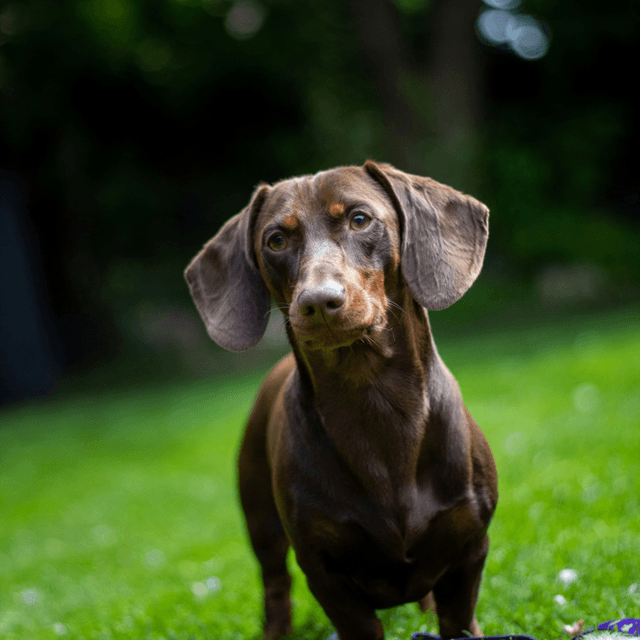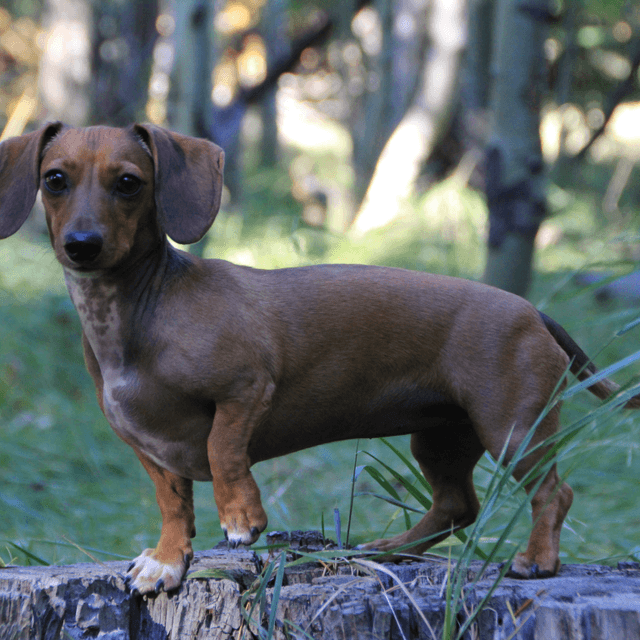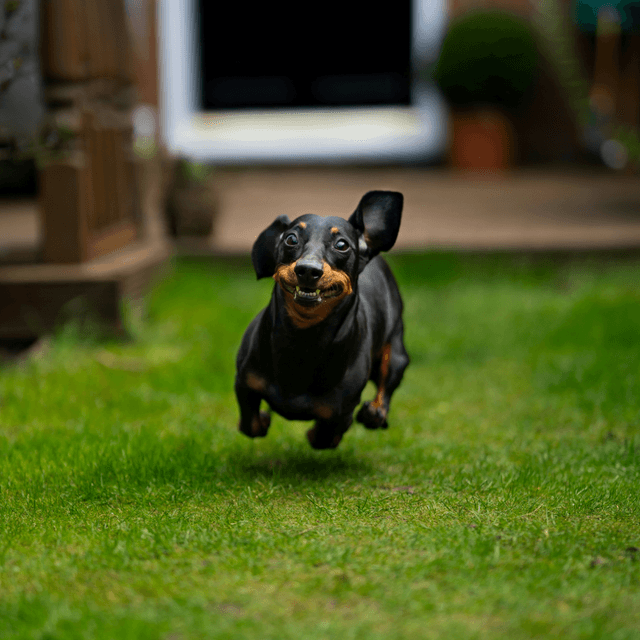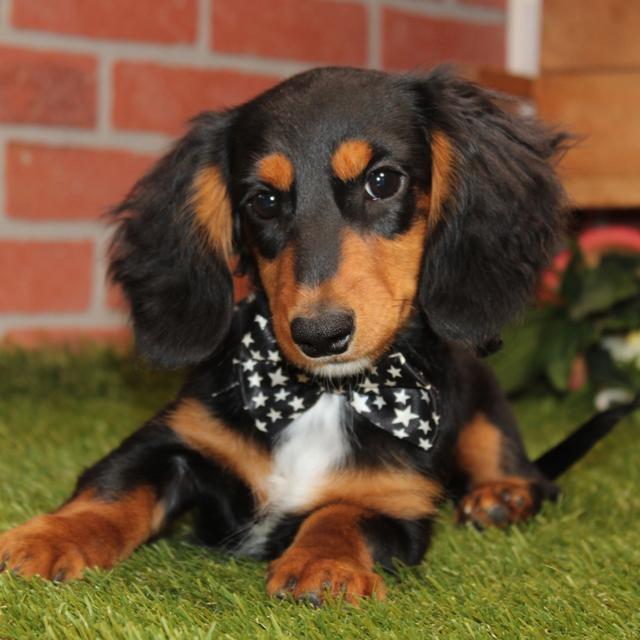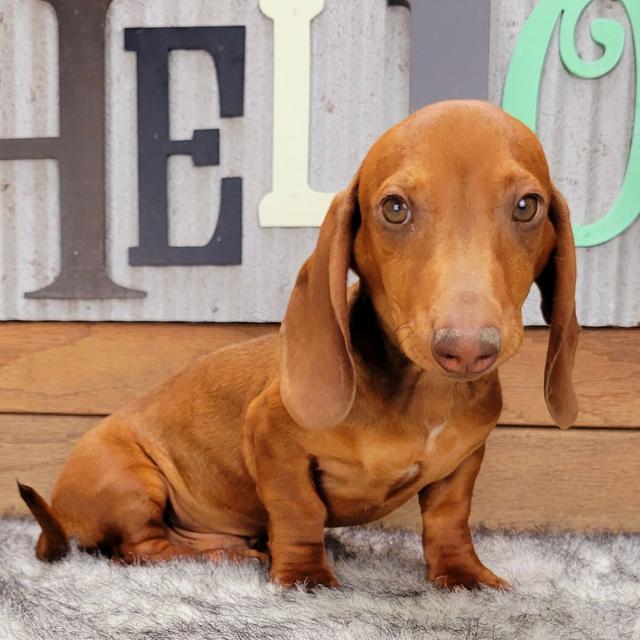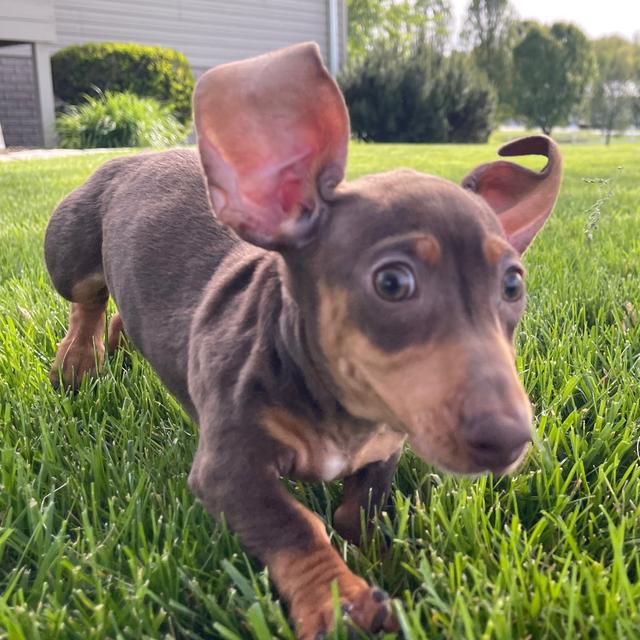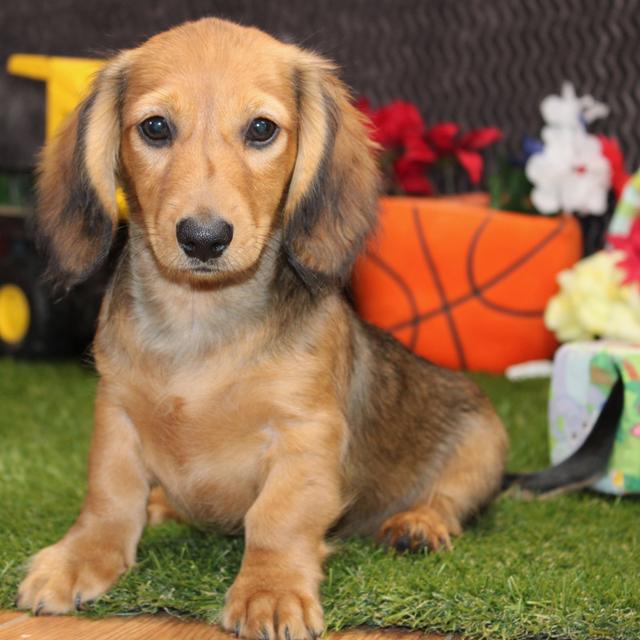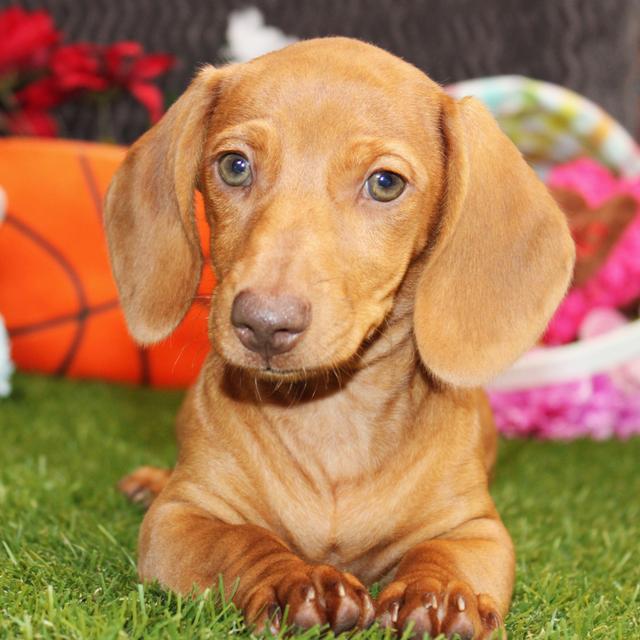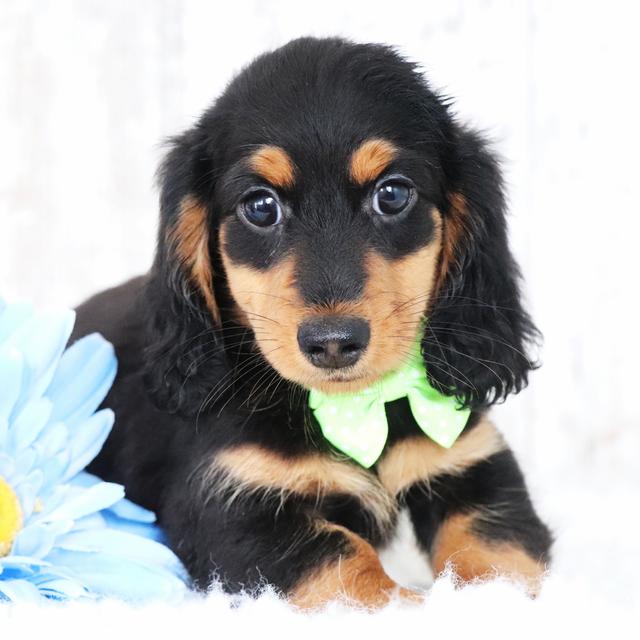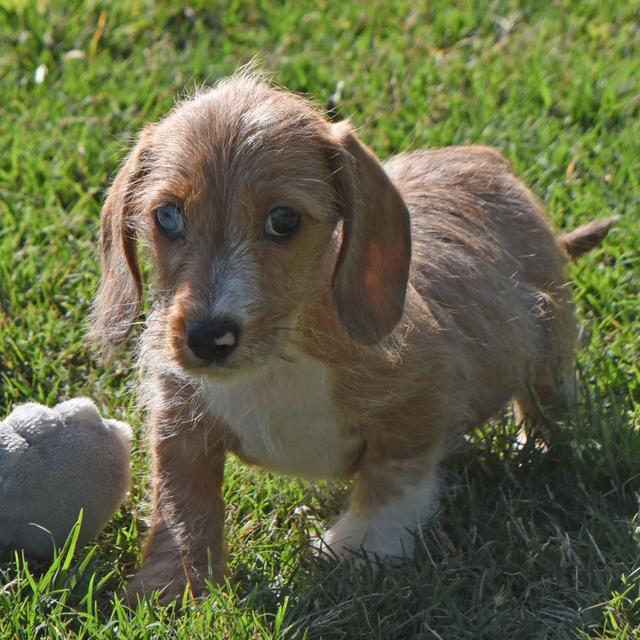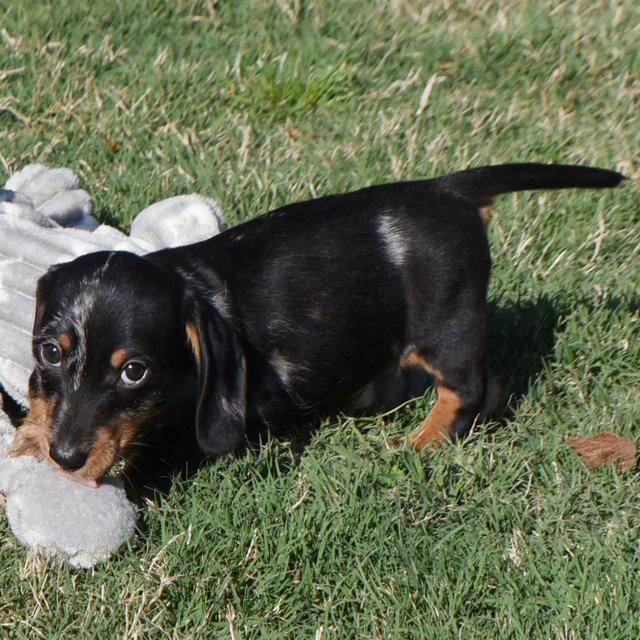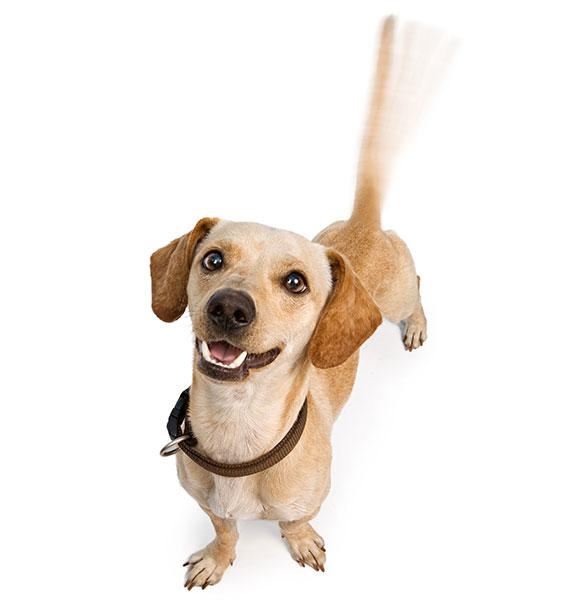Call us between 8AM-Midnight EST, every day!
dachshunds
Breed Overview
Browse All dachshund PuppiesQuick facts
Dachshunds can be a handful, but they are smart, loyal companions with an iconic look.
Available dachshund Puppies
Personality & Training
High
Moderate
- Kids
- Cats
- Other Dogs
- Apartments
- Large Living Spaces
- Seniors
- First Time Pet Owners
- Watch Dog
Physical Characteristics
Females: 9 in
Males: 10 in
Females: 14 lbs
Males: 15 lbs
Long Haired, Smooth Haired, Wire Haired
Bathe as Needed, Brush Weekly
Low
Explore Similar Breeds
About dachshunds
The Dachshund, with its overlong mid-section, stumpy legs, and affable personality is one of the most iconic canines in the world. Comically known as the "wiener dog", the Dachshund was originally bred for to scent, chase and flush out burrow-dwelling animals like the ferocious badger.
Dachshunds are clever, intelligent, and surprisingly courageous for their diminutive stature. Dachshunds are known for being playful and friendly, but as hunting dogs have developed a reputation for stubbornness; they are known to chase small animals and tennis balls with the ferocity of a much larger predator.
The stubborn personality can make training a Dachshund challenging and can manifest as occasional aggression toward strangers and other dogs. Despite a challenging training process, Dachshunds are counted among the smartest canines, likely to follow trained commands 50% of the time or more.
Dachshunds don't like strangers and may not be well-suited to a home with very small children. They bark a lot, especially at strangers, other dogs, and cats.
dachshund Care
Dachshunds are susceptible to back and spinal issues which can cause pain, bladder and bowel control problems, and even partial paralysis. To avoid future spinal issues, it's best to prevent your Dachshund from jumping off furniture or climbing stairs.
Of the three potential Dachshund coats, Smooth Dachshunds are the easiest to groom. Smooth Dachshunds are typically free of dog odor and don't need to be bathed very often. Smooth Dachshunds also shed very little. Wiping a damp washcloth along their coat can keep them looking shiny between baths and remove excess fur.
Wirehaired Dachshunds need regular brushing to free mats and debris from their coat. They will also require a more frequent bathing schedule than a Smooth Dachshund. Twice a year, a Wirehaired Dachshund's coat needs to be stripped - we recommend this be performed by a groomer the first time so you can learn the correct way to do it.
For a Longhaired Dachshund to look its best, it needs regular bathing, blow-drying, and daily brushing to free mats and debris from their coat. A Dachshund's ears are also prone to infection, so regular ear cleaning must also be part of your dog's grooming regimen.
Owners describe their Dachshund puppies as full of energy until they grow up, but keep in mind that it is possible to over-exercise a Dachshund puppy. Over-exercising a Dachshund puppy can result in abnormal development or spinal issues like out-turned feet, or a poor topline.
It is likely that a Dachshund will never be fully trained. The breed is not noted for its obedience but rather its tenacity. However, with a good deal of patience and consistency, A Dachshund can be trained to basic levels of obedience. This should not deter you from adopting a Dachshund puppy, but it should encourage you to do your research before welcoming one home. To determine whether you are up to the task of training a Dachshund consider the following:
Dachshunds don't like strangers. They often bark at strange people, cats and other dogs. Dachshunds should also be kept away from large dogs whenever possible.
Dachshunds bark a lot. Dachshunds bark at anything they perceive as an intruder into their space, be it other dogs, cats or a leaf.
Dachshunds may not be well suited for a home with small children. We recommend utilizing caution when introducing a Dachshund to small children. To avoid accidents, ensure that children are instructed on how to safely approach, pet and interact with a canine.
Dachshunds will always need a leash as Dachshunds have a very strong prey drive. They will chase after anything that catches their interest with surprising speed and are likely not to return unless they want to.
Dachshunds are born burrowers. Dachshunds were bred to burrow into rodent holes, which means they love to burrow into furniture, dig holes and otherwise insert themselves into places you may not wish for them to go.
Dachshunds are notoriously difficult to housebreak, and every owner should understand the likeliness that their Dachshund will never be fully housebroken. Consistency and reward are key to housebreaking a Dachshund. Ignore the pottying inside and reward the pottying outside.
